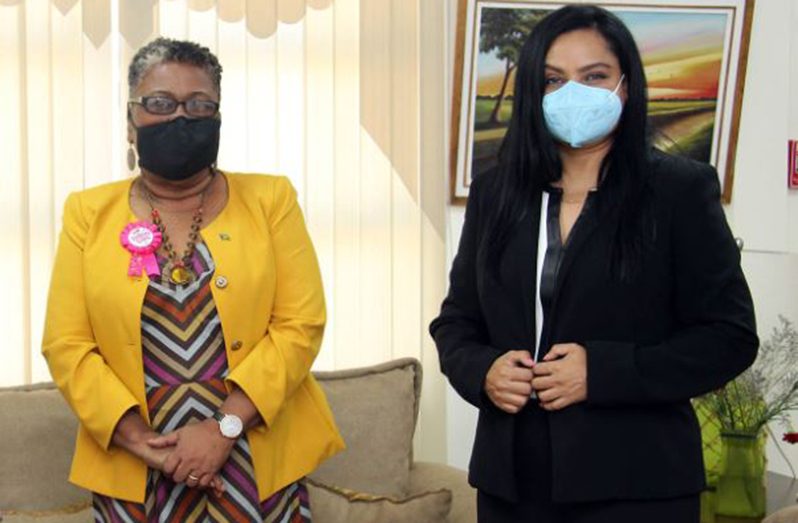APPROXIMATELY 700 children have been removed from the care of their parents or legal guardians and put into formal care, Director of the Childcare and Protection Agency (CPA), Ann Greene, has disclosed.
During an interview with the Sunday Chronicle, Greene stated that all of these children were removed from their home environment due to domestic abuse, neglect—which, she said, is a very serious form of abuse—and sexual abuse.
She explained, however, that excluding cases of neglect, sexual assault and physical abuse, separation of a child from their parent or legal guardian is usually not mandatory.
“We won’t usually remove the child if we get the parents to cooperate. They start to work with us, and understand that there are other methods of disciplining a child, and so on… We might have to remove [the children] if the parents are not willing to cooperate, and the children are at risk.”
Greene further explained that since the child is the priority in these scenarios, institutional care would only serve as a last resort, in the scenario where a next of kin is unavailable to take the child under their care.
“We will usually go and find a next of kin… an aunt or a grandmother, who is willing to care for this child. So, we make them the temporary guardian of this child, pending the investigation.”
Earlier this year, Greene had stated that child sexual abuse is of great concern to the CPA, due to the rising number of reports in this regard. During her recent interview, she reiterated this issue, noting that aside from neglect, sexual assault continues to account for a large percentage of the reported cases of child abuse.
“Sexual abuse is really done in the home, by people who the children trust and know. You hardly hear of strangers sexually abusing children. It’s usually persons who the children trust and know within their homes.”
In these cases, removal of the child is usually necessary, because parents prove to be enablers of recurring sexual abuse, Greene related.
“The parents are supporting the abusers. They hardly want to believe their children,” she said.
A report conducted by the Childcare and Protection Agency for the period January to October 2020, showed that almost 900 of the 4,030 child abuse cases reported were sexual in nature. In 2019, 890 cases of child sexual abuse were reported. Greene had noted that this was not due to low prevalence, but rather to a drop in the number of persons reporting child sexual abuse.
“It’s only the tip of the iceberg, because a lot of children are being abused, but it’s not known. Sexual abuse is something that is done behind closed doors. A lot of times children don’t have a voice to tell of being abused. Some children don’t even know it’s abuse. It’s a norm. That is the extent of the sexual abuse,” she had said.
On Tuesday last, in a visit to Baramita, Region One (Barima-Waini), Minister of Human Services and Social Security, Dr Vindhya Persaud, had urged residents to use the 914 hotline that is currently in place to guard against sexual abuse and violence, and reminded residents that it is toll-free and confidential.
She had said this in the wake of various complaints, including cases of child sexual abuse and incest, and urged both residents and officers to do their part in acting against wrongdoers.
“Sometimes, people don’t have anyone to look out for them, so the community needs to. We have to begin thinking of the word ‘together’,” the minister said.



.jpg)










